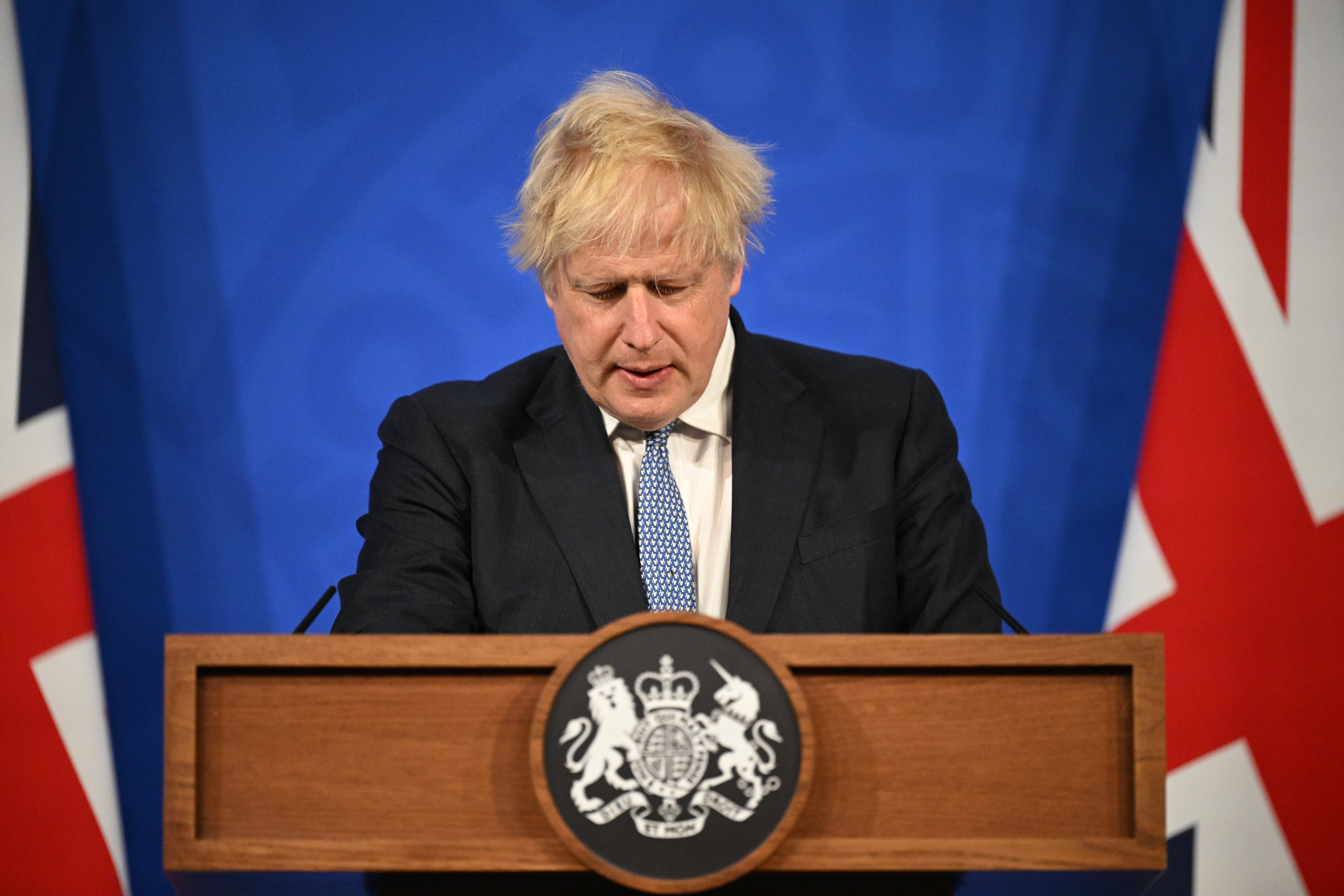Cameron, May, Thatcher: Politicians always resigned on principle – until Boris Johnson
Though the PM’s position looked perilous in February, he hasn’t had to draft a fond farewell, and may not for a good while yet


Your support helps us to tell the story
From reproductive rights to climate change to Big Tech, The Independent is on the ground when the story is developing. Whether it's investigating the financials of Elon Musk's pro-Trump PAC or producing our latest documentary, 'The A Word', which shines a light on the American women fighting for reproductive rights, we know how important it is to parse out the facts from the messaging.
At such a critical moment in US history, we need reporters on the ground. Your donation allows us to keep sending journalists to speak to both sides of the story.
The Independent is trusted by Americans across the entire political spectrum. And unlike many other quality news outlets, we choose not to lock Americans out of our reporting and analysis with paywalls. We believe quality journalism should be available to everyone, paid for by those who can afford it.
Your support makes all the difference.Imagine an alternate reality – utterly plausible until only a few weeks ago – in which Boris Johnson resigned after the publication of the Sue Gray report.
He could have channelled perhaps the most famous political resignation of all time, Sir Geoffrey Howe, who quit the Thatcher administration over her policy towards Europe. “In doing so, I have done what I believe to be right for my party and my country,” he said at the conclusion of his quietly devastating being-savaged-by-a-dead-sheep resignation speech.
Or as he took the rap over Partygate, it could have been the Conservative Party itself he prioritised, as Margaret Thatcher did when she quit in 1990, saying: “Having consulted widely among colleagues, I have concluded that the unity of the party and the prospects of victory in a general election would be better served if I stood down to enable cabinet colleagues to enter the ballot for the leadership.”
He could, like Robin Cook, who walked out as foreign secretary over Tony Blair’s Iraq war, have flattered the public, speaking of the respect he had “for the good sense and collective wisdom of the British people”.
Perhaps he could have claimed to be acting in the national interest, as both David Cameron and Theresa May did. The former spoke after the Brexit referendum of needing a “period of stability” at a time of crisis, and vowed to do “everything I can as prime minister to steady the ship over the coming weeks and months, but I do not think it would be right for me to try to be the captain that steers our country to its next destination”.
May, you may remember, was both emotional and humble. “I will shortly leave the job that it has been the honour of my life to hold. I do so with no ill will, but with enormous and enduring gratitude to have had the opportunity to serve the country I love,” she said, through tears.
But though Johnson’s position looked perilous in February – before Russia’s war in Ukraine – he hasn’t had to draft a fond farewell, and may not for a good while yet. Instead, he will stay in office for the foreseeable future, defending what many of his senior colleagues believe to be the indefensible.
Johnson’s strategy has evolved considerably over the past few months. In December 2021, he claimed “all guidance was followed completely in No 10” before adding, just over a week later, that he had been “repeatedly assured since these allegations emerged that there was no party and that no Covid rules were broken”.
Then, when the wine and cheese pictures emerged, the line from Johnson was that these were “people at work, talking about work”.
In January, when allegations surfaced about a suitcase full of wine being carted to a party on the eve of Prince Philip’s funeral, he apologised. Multiple apologies later, we had the final evolution of Johnson’s defence: his claim that while he took “full responsibility” for the behaviour of staff who vomited and sprayed red wine up the walls, it was his “duty” to show his face at lockdown parties to “say farewell to valued colleagues”.
To his critics, this is the ultimate insult. Many, including presenter Andrew Neil, have pointed out they themselves didn’t get lockdown leaving parties. Others have reminded the prime minister they didn’t have the opportunity to “say farewell” to valued loved ones, isolated in hospital beds.
To keep up to speed with all the latest opinions and comment, sign up to our free weekly Voices Dispatches newsletter by clicking here
And while Johnson’s resignation speech remains unwritten, his allies perform all sorts of semantic contortions to defend him. Few wanted to put their heads above the parapet and appear on television last night. They’ve seen how Bassetlaw MP Brendan Clarke-Smith was mocked when I asked him on Channel 4 News earlier this week if he was “content to back a lawbreaker in office”.
Without missing a beat, he responded: “I certainly am”, before appearing to query his own quote after the event on Twitter. Some Labour folk are promising to turn his words into an election leaflet.
This after Northern Ireland minister Conor Burns became a meme for explaining that Johnson had been “ambushed with a cake” at the birthday party that earned the prime minister his one and only fine – and his place in history as the only sitting PM to have broken the law. Privately some MPs complain their boss is turning them into a laughing stock.
Eventually, Johnson will pen that resignation speech. How soon depends partly on the extent to which today’s “special fiscal event” (an emergency Budget in other words) mitigates the escalating cost of living crisis.
If he and Rishi Sunak get it right, Johnson might have at least until the next election to compose his words. Then, though, however comical his long-suffering MPs are content to sound, voters may be less willing to be taken for fools.
Cathy Newman is presenter and investigations editor of ‘Channel 4 News’
Join our commenting forum
Join thought-provoking conversations, follow other Independent readers and see their replies
Comments